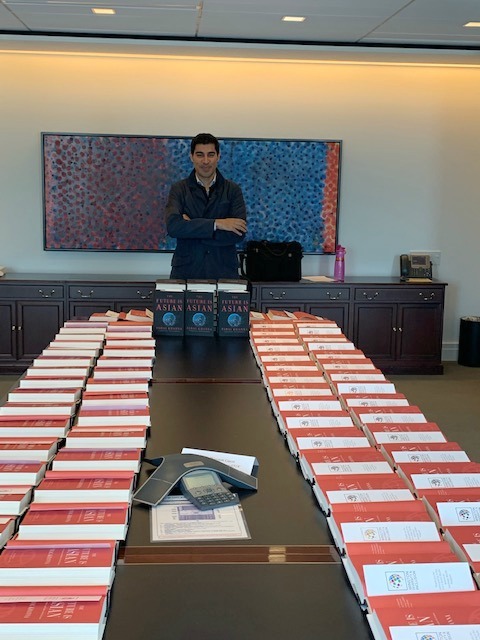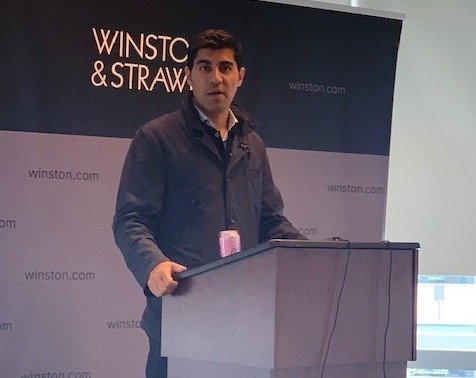Blog
Heritage Month Speaker Tells Story of Asia’s Rise in the Global Economy
Blog
May 22, 2019
The firm’s Diversity & Inclusion Committee and Winston Asian Leadership Initiative (WALI) affinity group were pleased to present an Asian Pacific American Heritage Month Program on May 14 featuring international relations expert and best-selling author Parag Khanna.
WALI Co-Chair Jovial Wong introduced Dr. Khanna, who holds a PhD from the London School of Economics and has appeared on Esquire’s “75 Most Influential” and Wired’s “Smart” lists. Based on his book – The Future is Asian: Commerce, Conflict & Culture in the 21st Century – Dr. Khanna makes the case that Asia’s place in today’s global economy stems from and is mutually beneficial to the historical powers of the United States and Europe.

He began the program, presented live in Washington, D.C. and broadcast to all U.S. and Europe offices, with an overview of the Asian economy and some myth-busting with regard to China’s position. “Asia is not China,” Dr. Khanna explained, and “China will not be the center of new world order” in today’s landscape of distributed power where there are many multi-trillion-dollar economies. However, the “center of gravity” that is China, India, and Southeast Asia is home to at least half of the world’s population; accounts for 45 percent of global GDP (in purchasing power parity terms), and contain all of the world’s fastest-growing economies.
To explain how we got here, Dr. Khanna told the 400+ firm members, clients, and alumni in attendance that we have to look to Japan where the first wave of the Asian economic miracle arose from the ashes of WWII. Inspired by Japan, the “tiger economies” of South Korea, Hong Kong, Taiwan, and Singapore represented the second wave. It wasn’t until 1979 when China enacted reforms that it started to take off, he explained. Today, India, Indonesia, the Philippines, and others are growing faster and have a younger population than China. “Southeast Asia is where the future lies for global firms looking for investment opportunities.”
Dr. Khanna also discussed the impact of the current U.S.-China trade war on businesses and consumers. “Asians trade way more with each other than anyone else, and the European Union is Asia’s second most important trading partner.” China’s Belt & Road infrastructure program and a new free trade agreement between the European Union and Japan are deepening the Asia-Europe trade connection and unlocking efficiencies across their economies, he explained. “Everyone understands that China has some unfair trade practices,” but it’s also important to understand that “we need them more than they need us.”

Just as colonial Europe and post-WWII America inspired Asia’s rise as a global economic power, the Western world can be inspired to new heights by looking to the social mega-trends shaping today’s Asian markets: urbanization, digitization, and financialization. Asian cities have high infrastructure investment and concentrations of consumers, everything is digital and digital is free, and people with low-income levels can get loans and invest for retirement using WeChat, Dr. Khanna told attendees. “Asianization in so many ways will enrich the rest of the world in the same way that Europeanization and Americanization gave some lasting gifts as well.”
He concluded by recognizing the positive impact that Asian immigrants have had on America, from winning major science and literary prizes to introducing yoga and vegetarian diets. “The Asian-ness in our lives can help us reconcile today’s political climate with our personal reality.”
This Heritage Month program was part of Winston’s annual series that celebrates the diversity that exists at the firm and helps foster an inclusive work environment. Visit our Diversity & Inclusion page for more information.
This entry has been created for information and planning purposes. It is not intended to be, nor should it be substituted for, legal advice, which turns on specific facts.
